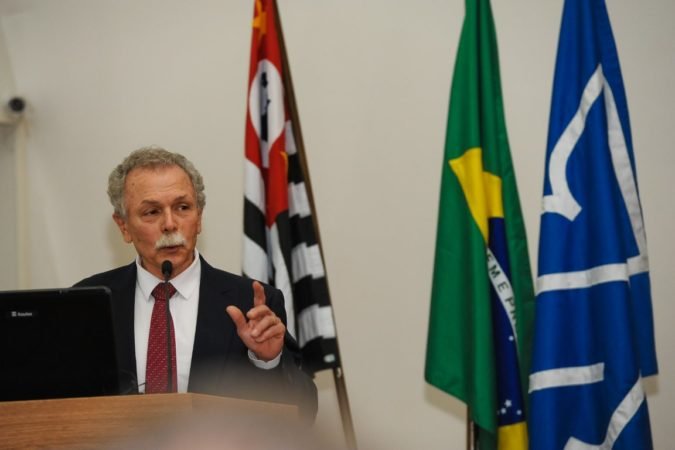Brazil’s Space Agency Head Was Sacked for Defending Climate Science

Ricardo Galvão, the former director of Brazil’s space and climate-monitoring agency, left his position earlier this month after defending scientific findings that showed that the world’s largest tropical rainforest is undergoing a sharp increase in deforestation.
In just one month, June 2019, the Amazon rainforest experienced deforestation over about 800 square miles (2,072 square km), a region roughly 10 times larger than Texas. That total, published July 4, comes from the Deforestation Detection System in Real-Time (DETER), a program run by Brazil’s National Institute for Space Research (INPE).
DETER uses data from Earth-observing satellites to track tree loss in the Amazon. The program also found that Amazon rainforest deforestation increased by 15% from August 2018 to June 2019 compared with the same period in 2017 and 2018.
Reuters reported that, approximately two weeks after this alert was published, Brazilian President Jair Bolsonaro called INPE’s deforestation data “a lie” during a meeting with foreign journalists and accused INPE of trying to undermine the Brazilian government. Galvão, then INPE’s director, defended the science.
DETER representatives were invited to meet with Brazil’s Ministry of Science, Technology, Innovation and Communications in Brasilia on July 31. “At this meeting, the INPE team presented the methodology and results of DETER, and also, [additional] projects, and answered all the questions presented,” INPE officials said in an Aug. 1 statement.
At a second meeting, the minister of Brazil’s Institute of the Environment and Renewable Natural Resources, Olivaldi Azevedo, said there were “inconsistencies and errors” in DETER’s data, according to INPE’s statement.
“INPE clarifies that [it] had no previous access to this analysis and [INPE’s] representatives answered all the questions raised during the presentation,” INPE officials wrote. “For a complete analysis, [we] requested access to the study… INPE reaffirms its confidence in the quality of data produced by DETER. Alerts are produced following widely publicized methodology and consistently applied since 2004. It is widely known that it contributed to the reduction of deforestation in the Amazon region when used in conjunction with enforcement actions.”
Bolsonaro took office in January after running a right-wing populist campaign, and the departure of Galvão, an MIT-trained scientist, is only the most recent escalation between the government and the country’s scientific community. Since Bolsonaro entered the office, Brazilian scientists have witnessed funding cuts, intimidation and rollbacks of environmental regulations, according to a recent article published by the journal Nature’s news section. Many local scientists see the situation as an effort to halt or hide unfavourable research.
After Galvão publicly and sharply criticized Bolsonaro’s language and the attack on INPE’s deforestation monitoring system, he met with Marcos Pontes, Bolsonaro’s science and technology minister and the first Brazilian astronaut to live on the International Space Station, which he did in 2006. That meeting ended, according to Galvão, with his involuntary departure from the agency, according to Reuters.
The meeting with Pontes was amicable, Galvão said in a recent interview with Scientific American. “I was afraid I would be pressed to resign. Pontes never did that. He said, ‘The problem we have with the president has reached a point where you cannot work any further for the government,’ Galvão told Scientific American. “Over almost an hour, we discussed in detail everything that should be done to provide enough financial resources for INPE to keep carrying out its activities and make the commitment not to curb any of our data.”
This report was originally published at Space.com



















